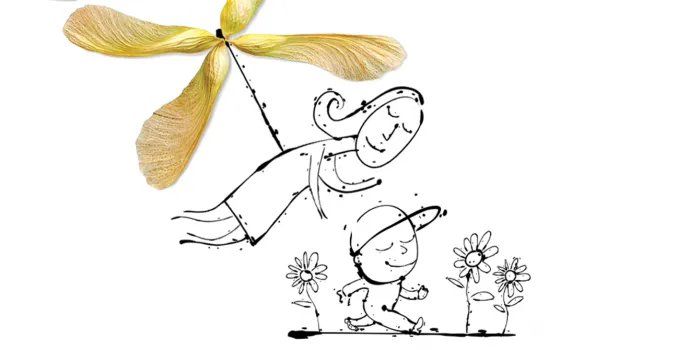A few years ago, Janet Barone received a phone call from her son, Cameron, that led her to realize her world had shifted beneath her.
In high school at the time, Cameron, who has severe hemophilia B, called because he was having a bleed. Barone calmly asked a few questions to assess the severity. “When he was done explaining everything, I said to him, ‘OK, when we get off the phone, I’d like you to call the treatment center and let them know what’s going on and see what advice they have.’”
Cameron’s reply: “Oh, I just got off the phone with them.”
It was a small moment, but Barone, of Center Township, Pennsylvania, appreciated its significance. “That’s the first time I realized, ‘Wow, I don’t need to be the middleman anymore,’” she says. “It was kind of cool.”
Cameron is now studying agricultural science at Penn State University and is fully transitioned to adult care and responsible for his bleeding disorder. Barone says she and her husband, Jim, now have a supportive role in his care, though they still check in and offer advice.
“We’re still his parents,” she says. “I don’t think we can help ourselves!”
Shifting Identities
What Barone confronted is a reality that all parents of kids with bleeding disorders eventually face. After years of being the experts on their child’s condition, they will have to relinquish that role as the child begins to manage his or her condition independently.
To make the transition successfully, parents must adjust to a new identity, no longer centered around being a primary caregiver. Kathaleen Schnur, LSW, a social worker at the Hemophilia Center of Western Pennsylvania, recognizes that some parents may be caught off guard by these changes.
“We talk so much about this transitional period with regard to the pediatric patients,” Schnur says. “But I feel sometimes that we’re not addressing the transitional period that a parent or a guardian also experiences.”
In addition to changes to their identity as a caregiver, parents may feel changes in their relationships within the broader bleeding disorders community—for example, from primarily seeking advice to sharing their expertise with others. “My younger families have greatly benefited from engaging with parents and guardians who have adult children,” Schnur says.
That said, Barone thinks that parents should never stop asking for advice when they need it. “I still look toward parents who’ve been in my shoes before for mentorship,” she says. “It’s really important for parents to be connected in all stages.”
As daily caregiving responsibilities ebb, parents may also take the opportunity to involve themselves more with their local National Hemophilia Foundation (NHF) chapter.
As her son got older, Barone became more involved with the Western Pennsylvania Chapter of NHF. She started as a volunteer and then became a board member. When a part-time position became available, Barone applied and was hired. Now, she is the chapter’s full-time program director.
Finding Meaning in a New Identity
Schnur notes that there are opportunities to grow within these identity changes. The time previously spent managing a child’s bleeding disorder—scheduling appointments, ordering factor, giving infusions, communicating with teachers, coaches and school nurses—can now be devoted to a parent’s personal or professional goals, which Schnur says can help them find meaning.
“When kids are transitioning, there’s a sense of grief and then a loss of purpose,” Schnur says. “As you navigate your way through those murky and somewhat emotional waters, you come out and then there’s this rediscovery of yourself.”
Of course, there’s one identity that will never change: parent. “No matter how grown a child is, it doesn’t make a parent or a guardian any less a parent or a guardian,” Schnur says.
Still, moms and dads will be learning to parent in a new way. “Parents spent so much of their lives adjusting to meet the needs of their children with a chronic condition,” Schnur explains. “And now, they’re shifting to fit into the lives of their children.”

